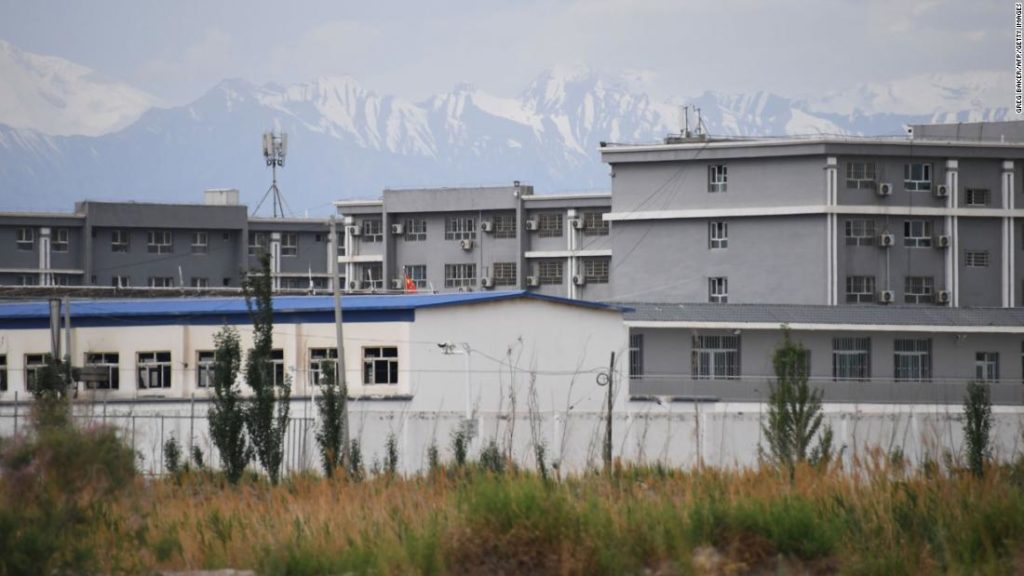The report finds that China’s government is deliberately trying to
“destroy” the Uyghur ethnic group, contravening every provision of the Genocide Convention that it has ratified. Up to 2 million Uyghurs have been detained in camps in the northwestern province and former detainees have testified to indoctrination, sexual abuse and forced sterilization. China denies human rights abuses and says the centers counter religious extremism and terrorism.
In Washington,
few doubt what is going on: On its last day, the Trump administration belatedly declared a genocide (after the ex-President soft-pedaled the issue while pursuing a trade deal with China). President Joe Biden came to an identical conclusion while he was a candidate. Now the US response is on him.
But the world has struggled before to mobilize against genocide even in small nations without China’s vast clout, like Bosnia or Rwanda. In this case, there’s no chance of a military response to stop the torment of the Uyghurs. And while nations could make trade with China conditional on improvements in human rights, few political leaders will hurt their own economies to make such a point. So far, there’s not much stomach for a boycott of the Beijing Winter Olympics in 2022 — a point of leverage given the Games’ propaganda value to China.
David Scheffer, a former US ambassador at large for War Crimes Issues, said on CNN’s “Amanpour” on Tuesday that one punishment could be to label goods from Xinjiang as the product of forced labor or a “genocidal” nation. Targeted measures like sanctions on individual Chinese government figures are still an option. And repeated condemnation of Beijing across all levels of diplomacy could seek to shame and publicly embarrass China into changing its behavior.
But
such a campaign will come up against the issue common to every point of contention between Xi Jinping’s hardline government and its adversaries, from Beijing’s crackdown on pro-democracy protesters in Hong Kong, to espionage in the West and violations of global trade norms: Is China now so powerful, rich and dedicated to an authoritarian course that it is impossible to shame and impervious to change?
First pup
Every cub reporter knows that while Man bites Dog is a story, Dog Bites Man is destined for the
spike. But when the mutt in question is the commander in chief’s best friend, it’s front page news.
CNN’s Kate Bennett reports that
the President’s German Shepherd Major is in the doghouse. Presumably, the First Pet was the aggressor, though you wouldn’t know it from an aide’s euphemistic reference to his “biting incident” last week with a member of White House security.
Major and his pal Champ
were banished to the President’s private home in Delaware. Major has been known to bark, charge and jump up at White House staff and already has a bit of a notorious history. While Biden was playing with him in November, the President-elect fractured his own foot.
Major‘s latest escapades have the conservative media in a frenzy as pundits take a break from fretting about children’s authors and plastic toys. Sean Spicer, Donald Trump’s first press secretary, wondered on Twitter whether taxpayer cash was used to ferry the two dogs back to the First State. Spicer, who now has a show on Newsmax TV, didn’t raise such questions over his old boss’ 400 trips to Trump-branded properties and 300 days in office playing golf.
One of Spicer’s successors, Biden’s top press handler Jen Psaki, assured reporters on Tuesday that Major would be back at the White House soon. But the hacks might want to watch themselves in case Major follows in the paw prints of George W. Bush’s Scottish terrier: Barney Bush once bit the hand of a member of the White House Press Corps in a drama that quickly turned into a metaphor for tensions between reporters and a President who never liked to throw them a bone.


